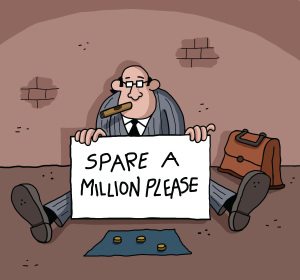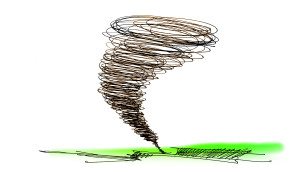 A federal judge in New York rejected an intellectual property firm’s attempt to rely on the Supreme Court’s 2014 Alice decision as grounds to set aside a jury’s multi-million dollar verdict for mishandling a client’s patent application. In denying post-trial motions, U.S. District Judge Pamela Chen ruled that Virginia law firm Antonelli Terry Sout & Kraus LLP forfeited its Section 101 defense because it neglected to raise the issue at trial. Protostorm LLC et al. v. Antonelli Terry Stout & Kraus LLP, No. 1:08-cv-00931 (E.D.N.Y. June 5, 2015).
A federal judge in New York rejected an intellectual property firm’s attempt to rely on the Supreme Court’s 2014 Alice decision as grounds to set aside a jury’s multi-million dollar verdict for mishandling a client’s patent application. In denying post-trial motions, U.S. District Judge Pamela Chen ruled that Virginia law firm Antonelli Terry Sout & Kraus LLP forfeited its Section 101 defense because it neglected to raise the issue at trial. Protostorm LLC et al. v. Antonelli Terry Stout & Kraus LLP, No. 1:08-cv-00931 (E.D.N.Y. June 5, 2015).
Background
As previously discussed in our post (click here), this dispute started in 2001 after counsel from the Antonelli firm filed a PCT patent application on behalf of Protostorm. Under the Patent Cooperation Treaty (PCT), a U.S. applicant may file one application, “an international application,” in a standardized format in English in the USPTO, and have that application acknowledged as a regular national or regional filing in as many Contracting States to the PCT as the applicant “designates” or “elects,” that is, names, as countries or regions in which patent protection is desired. Upon payment of national fees and the furnishing of any required translation, usually 30 months after the effective filing date, the application will be subjected to national procedures.
In Protostorm’s international application, Antonelli inexplicably failed to designate the United States as a country where patent protection was desired. Later, a firm internal note stated that Antonelli should cease work for Protostorm, apparantly because of unpaid legal fees. Protostorm nevertheless believed “all was well” with regard to its patent application. No communications took place between the law firm and its client for several years.
In 2006, Protostorm learned that Google might be infringing what it regarded as its invention. In 2007, the Antonelli firm advised Protostorm that an international application had been filed but had been deemed “withdrawn” because no “national stage” submissions were ever filed. In other words, Protostorm had no patent rights to assert against Google or anyone else.
 In 2008, Protostorm sued the Antonelli firm and others for malpractice. The case was tried to a jury in 2014, which returned a verdict in favor of Protostorm. Including compensatory damages, punitive damages, and interest, the total judgment amounted to approximately $8 million. The district court stayed enforcement of the judgment pending resolution of defendants’ post-trial motions.
In 2008, Protostorm sued the Antonelli firm and others for malpractice. The case was tried to a jury in 2014, which returned a verdict in favor of Protostorm. Including compensatory damages, punitive damages, and interest, the total judgment amounted to approximately $8 million. The district court stayed enforcement of the judgment pending resolution of defendants’ post-trial motions.
In January 2015, the Antonelli firm and attorneys Carl Brundrige and Frederick Bailey filed motions asking the district court to set aside the jury verdict pursuant to Federal Rule of Civil Procedure 50(b). On June 5, 2015, the district court issued a 49-page memorandum opinion denying the defendants’ post-trial motions.
Antonelli argued Protostorm had failed to establish proximate causation because the patent application claimed unpatentable subject matter pursuant to 35 U.S.C. § 101 and was obvious under 35 U.S.C. § 103. The district court rejected both arguments.
As for Section 101, Antonelli argued the hypothetical claims drafted by Protostorm’s expert were directed to an unpatentable “abstract concept of selecting advertising based on a customer’s interaction with an advertiser’s content” and, thus, was ineligible under Alice Corp. Pty., Ltd. v. CLS Bank International, 134 S. Ct. 2347 (2014). Antonelli further argued that the hypothetical claim at issue in trial was obvious and thus not patentable under Section 103.
Judge Chen rejected both arguments because counsel for Antonelli failed to move for judgment under Section 101 or Section 103 at trial, pursuant to Fed. R. Civ. P. 50(a). The district court held that, “Although Defendants’ oral Rule 50(a) motions at trial challenged the patentability of the Protostorm invention, the grounds stated by their trial counsel were altogether different from the Section 101 and 103 arguments raised in the Rule 50(b) motion.” Because Antonelli’s counsel failed to preserve these issues at trial, its request for post-trial judgment was “forfeited.”
The court further found no ground existed to excuse Antonelli’s failure to raise these issues during trial. As for the Section 101 motion, the court noted that Antonelli was on notice of Alice since the case was decided approximately one month before trial. In dictum, the district court further noted that even if Antonelli had not forfeited the Section 101 defense, reliance on Alice and its progeny would be “problematic.” The court explained that:
Unlike a patent infringement case, in which an alleged infringer may challenge the patent as now ineligible under Alice, in this malpractice case, Protostorm claimed that but for Defendants’ malpractice, the Protostorm invention would have been examined by a PTO patent examiner at between 2001 and 2006, and that one patent would have issued by June 2006—well before Bliski, Mayo, Alice, and their progeny were decided. Thus, the only question is whether the patent application would have resulted in an issued patent in the 2001 to 2006 time period so that the patent could have been monetized through licenses during the relevant time.
The court further noted that even if the patent could have been invalidated in a later infringement action under Alice, “Protostorm would still be entitled to any royalty income earned until then. As Protostorm’s opposition correctly observes, money earned, and contractual rights to continue earning, under licenses are not terminated by the possibility of a future challenge to invalidate the Protostorm patent.”
Unfortunately for Antonelli, the Perfect Protostorm still continues–and seems to be gathering strength.
First, the court ordered that no motion for reconsideration could be filed.
Second, the district court vacated its December 2014 Order staying enforcement of the judgment. Protostorm accordingly may seek enforcement of the final judgment.
Third, the court ruled that “any person who was a partner of the firm as of December 23, 2014 [is] prohibited from distributing, disposing of, or dissipating any cash or other assets of the firm.”
Fourth, the court ordered Antonelli to file an accounting of the firm’s assets, obligations, receipts, and distributions.
Finally, Protostorm filed a request for permission to file a motion for contempt for the firm’s alleged failure to abide by a prior Court order restricting the firm’s distributions and spending. The court entered a briefing schedule ordering Protostorm to file its contempt motion by June 25 and defendants to file any opposition by July 2.

Pingback: Appeals Court Rejects Belated Alice Defense, Affirms $8 Million Patent Malpractice Award | IPethics & INsights